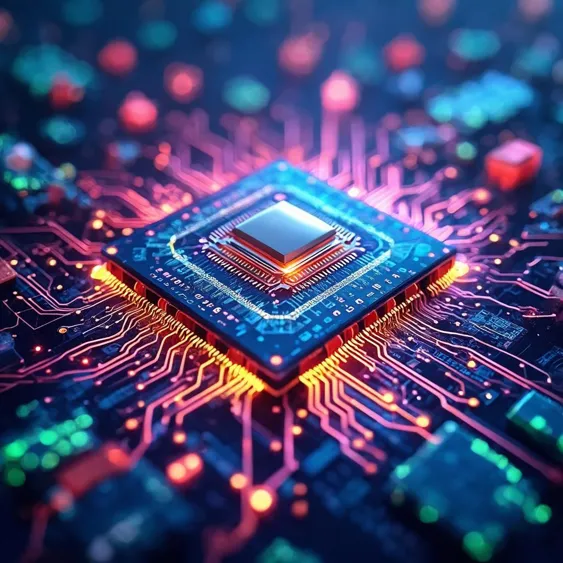Nvidia Hits $4 Trillion Valuation: AI Powerhouse

In an era where technology continues to reshape our world, Nvidia's recent milestone as the first company to achieve a market valuation of $4 trillion underscores the significant role the company plays in the ongoing artificial intelligence (AI) revolution. This remarkable achievement not only highlights Nvidia's pioneering position in the AI landscape but also raises questions about the sustainability of such valuations in technology-driven sectors. Understanding Nvidia's journey—how it transitioned from a graphics card maker to the foundational provider for AI technologies—offers insights into broader economic trends driven by technological innovation.
Nvidia primarily produces graphics processing units (GPUs), which are essential for rendering images in video games and running complex calculations required for AI. Unlike traditional central processing units (CPUs), GPUs can process multiple tasks simultaneously, making them ideal for machine learning applications that fuel generative AI models such as ChatGPT. This shift towards AI-centric technology has led to soaring demand for Nvidia’s products, cementing its position as a leader in a quickly evolving market. For instance, the leap from being valued at $1 trillion in June 2023 to $4 trillion is attributed not only to increased demand for gaming but also to the expansive use of AI across various industries, including healthcare and finance.
However, this rapid growth also invites scrutiny and reflects longstanding market dynamics. For example, many analysts highlight how Nvidia's stock fluctuated during geopolitical uncertainties, such as trade policies. Despite these factors, Nvidia's strong financial performance, which includes a staggering revenue increase of 69% year-over-year, emphasizes Wall Street's confidence in AI technology's future. Moreover, as Nvidia's CEO Jensen Huang gains celebrity status for his role in this tech surge, it invites a deeper conversation about the valuation of tech companies and the risks associated with hype-driven markets. Is this growth sustainable, or will market corrections reshape the industry landscape in unforeseen ways?
Read These Next

Advancement in Neuroscience Imaging Technology
Commentary on a recent breakthrough in imaging technology for neuroscience developed by researchers in China, discussing its implications and potential applications.

Web Summit Kicks Off in Vancouver with Global Tech Leaders
The Web Summit in Vancouver gathered global tech experts to discuss technology's role in sustainability.

Study Finds Universe Decay May Be Faster Than Expected
Radboud University research suggests the universe may decay faster, ending in about 10^78 years, raising new cosmic questions.
